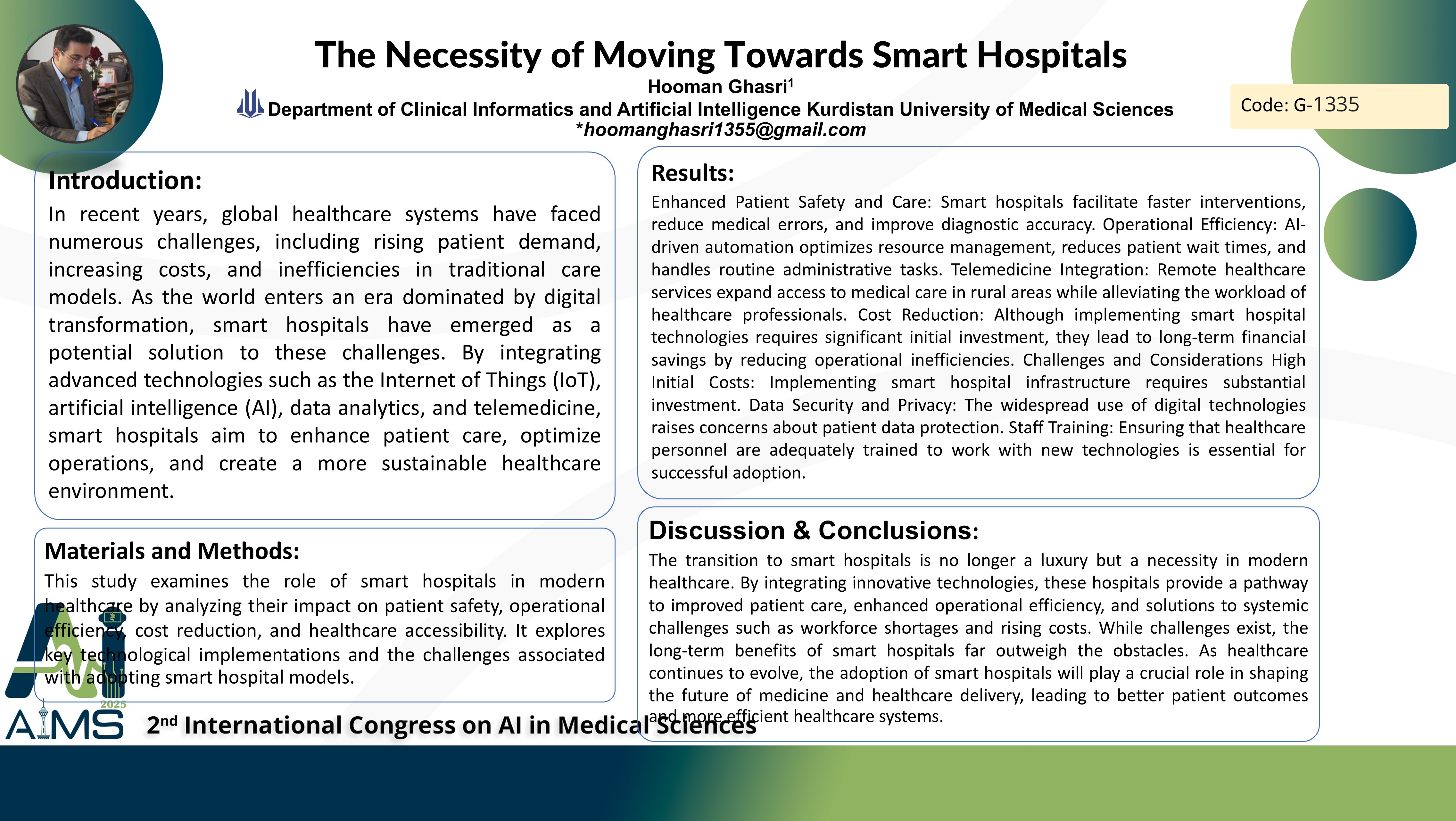The Necessity of Moving Towards Smart Hospitals
Code: G-1335
Authors: Hooman Ghasri * ℗
Schedule: Not Scheduled!
Tag: Clinical Decision Support System
Download: Download Poster
Abstract:
Abstract
Background and Aims: In recent years, global healthcare systems have faced numerous challenges, including rising patient demand, increasing costs, and inefficiencies in traditional care models. As the world enters an era dominated by digital transformation, smart hospitals have emerged as a potential solution to these challenges. By integrating advanced technologies such as the Internet of Things (IoT), artificial intelligence (AI), data analytics, and telemedicine, smart hospitals aim to enhance patient care, optimize operations, and create a more sustainable healthcare environment. Method: This study examines the role of smart hospitals in modern healthcare by analyzing their impact on patient safety, operational efficiency, cost reduction, and healthcare accessibility. It explores key technological implementations and the challenges associated with adopting smart hospital models. Results: Enhanced Patient Safety and Care: Smart hospitals facilitate faster interventions, reduce medical errors, and improve diagnostic accuracy. Operational Efficiency: AI-driven automation optimizes resource management, reduces patient wait times, and handles routine administrative tasks. Telemedicine Integration: Remote healthcare services expand access to medical care in rural areas while alleviating the workload of healthcare professionals. Cost Reduction: Although implementing smart hospital technologies requires significant initial investment, they lead to long-term financial savings by reducing operational inefficiencies. Challenges and Considerations High Initial Costs: Implementing smart hospital infrastructure requires substantial investment. Data Security and Privacy: The widespread use of digital technologies raises concerns about patient data protection. Staff Training: Ensuring that healthcare personnel are adequately trained to work with new technologies is essential for successful adoption. Conclusion: The transition to smart hospitals is no longer a luxury but a necessity in modern healthcare. By integrating innovative technologies, these hospitals provide a pathway to improved patient care, enhanced operational efficiency, and solutions to systemic challenges such as workforce shortages and rising costs. While challenges exist, the long-term benefits of smart hospitals far outweigh the obstacles. As healthcare continues to evolve, the adoption of smart hospitals will play a crucial role in shaping the future of medicine and healthcare delivery, leading to better patient outcomes and more efficient healthcare systems.
Keywords
Smart Hospitals, Digital Healthcare, Artificial Intelligence
